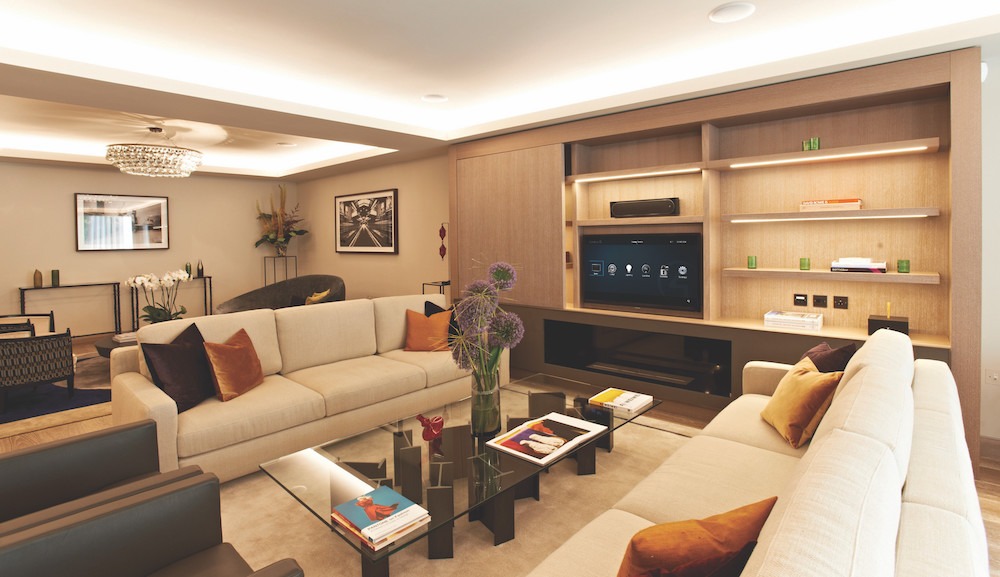Smart Lighting Solutions for Every Room is a game-changer in how we illuminate our spaces, blending functionality with style. In today’s fast-paced world, lighting is not just about visibility; it’s about creating ambiance, enhancing productivity, and even saving energy. Whether you’re redesigning a cozy living room or optimizing your home office, smart lighting offers versatility and convenience that traditional fixtures simply can’t match.
From automatic dimming to color-changing capabilities, smart lighting systems adapt to your lifestyle needs, allowing you to customize your environment at the touch of a button. With the integration of smart home technology, these solutions provide an innovative approach to interior design and energy efficiency.
In recent years, the concept of remote work has transitioned from a niche arrangement to a mainstream mode of operation for many businesses worldwide. The evolution of technology, alongside recent global events, has accelerated this shift, changing how we approach not just our jobs but also our lifestyles. In this article, we will explore the rise of remote work, its benefits and challenges, and how it is reshaping our world.
The Evolution of Remote Work
Remote work is not a new phenomenon; it has existed in various forms for decades. Initially, it was more common among freelancers and consultants who sought flexibility. However, the advent of advanced communication technologies—like email, video conferencing, and collaborative software—has made it easier than ever for employees to work from home or anywhere with an internet connection.
The COVID-19 pandemic acted as a catalyst, forcing many organizations to adopt remote work policies virtually overnight. This sudden shift proved that remote work was not just a temporary arrangement but a viable long-term solution for businesses. As a result, many companies began to recognize the benefits of remote work, leading to a more permanent change in workplace dynamics.
Benefits of Remote Work
One of the most significant advantages of remote work is flexibility. Employees can tailor their work environments to suit their preferences, whether it’s working from a home office, a café, or a beach. This flexibility often leads to increased job satisfaction and productivity.
Additionally, remote work can contribute to a better work-life balance. Employees have more control over their schedules, allowing them to manage family commitments, hobbies, and personal interests effectively. This improved balance can lead to lower stress levels and, consequently, better mental health.
From an organizational perspective, remote work can also reduce overhead costs. Companies can save on office space, utilities, and other expenses associated with maintaining a physical workspace. This reduction in costs can be redirected toward investments in technology or employee development.
Moreover, remote work opens up a broader talent pool for employers. Companies are no longer limited to hiring talent within a specific geographic area. They can recruit skilled professionals from around the globe, promoting diversity and enhancing innovation.
Challenges of Remote Work
While remote work presents numerous benefits, it also comes with its challenges. One of the primary concerns is communication. In a remote environment, miscommunications can occur more frequently due to the lack of face-to-face interactions. Teams must establish clear communication protocols and leverage technology effectively to mitigate misunderstandings.
Another challenge is maintaining a sense of team cohesion and company culture. Remote work can lead to feelings of isolation among employees, impacting morale. Organizations need to find creative ways to foster engagement and connection, such as virtual team-building activities or regular check-ins.
Additionally, the blurred lines between work and personal life can pose problems for remote workers. Without a clear separation between work and home, employees may find it challenging to unplug, leading to burnout. It is crucial for companies to encourage healthy work habits and establish boundaries to protect their employees’ well-being.
The Future of Remote Work
As we look ahead, it is clear that remote work is here to stay. Many organizations are adopting hybrid models, allowing employees to split their time between the office and their remote locations. This flexibility combines the best of both worlds, facilitating collaboration while accommodating individual preferences.
Moreover, advancements in technology will continue to support remote work. Tools like virtual reality and artificial intelligence are on the horizon, promising to enhance remote collaboration and create more immersive working environments. Companies that embrace these innovations will likely gain a competitive edge in the evolving landscape.
Furthermore, as remote work becomes more entrenched, we may see a shift in urban planning and real estate. With fewer employees commuting to centralized offices, cities might reconsider their infrastructure and housing policies, leading to more distributed living patterns.
Conclusion
The rise of remote work represents a significant shift in how we conceptualize our careers and lifestyles. While it offers numerous benefits like flexibility, cost savings, and access to a global talent pool, it also poses challenges that organizations must address. As we navigate this new landscape, it is essential for both employees and employers to adapt, ensuring that remote work contributes positively to their professional and personal lives.
The future of work is evolving, and the way we embrace these changes will shape our world for years to come.
Query Resolution: Smart Lighting Solutions For Every Room
What are the benefits of smart lighting?
Smart lighting offers energy savings, convenience, customizable ambiance, and integration with other smart home devices.

Can I control smart lighting remotely?
Yes, most smart lighting solutions can be controlled via smartphone apps or voice assistants from anywhere.
Is smart lighting easy to install?
Many smart lighting products are designed for easy DIY installation, but some may require professional help depending on the system.
Does smart lighting work with existing fixtures?
Yes, there are smart bulbs and adapters available that can fit into existing light fixtures, making it accessible to upgrade your current setup.
What makes smart lighting different from regular lighting?
Smart lighting allows for wireless control, scheduling, automation, and often features energy-saving options that traditional lighting lacks.






